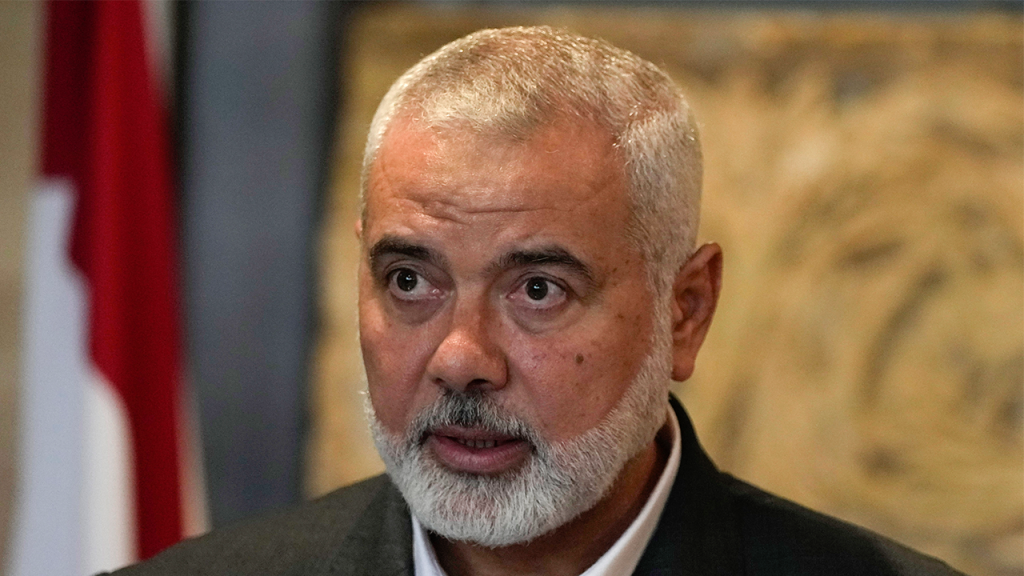The assassination of Hamas political chief Ismail Haniyeh was reported to have been carried out in Tehran using an explosive device hidden inside the guesthouse where he was staying. The bomb was remotely detonated in the early hours of Wednesday, killing Haniyeh and a bodyguard. Haniyeh was in Tehran for Iranian President Masoud Pezeshkian’s swearing-in ceremony. The State Department did not immediately respond to requests for comment on the incident. The explosive device was reportedly placed in Haniyeh’s room two months prior and was set off once it was confirmed that he was present.
Haniyeh had stayed at the guesthouse several times before during visits to Tehran, according to Middle Eastern officials speaking anonymously to The New York Times. Israeli intelligence officials briefed U.S. and other Western governments about the operation shortly after the assassination. While Israel has not publicly claimed responsibility for the killing, both Iran and Hamas are blaming the Jewish State. Three Iranian officials expressed embarrassment over the security breach that allowed the explosive device to enter the compound where Haniyeh was staying. The compound is used by the Guards for secret meetings and housing prominent guests.
It remains unclear how the bomb was hidden inside the property, raising questions about security protocols within the compound. U.S. Secretary of State Antony Blinken commented on the assassination, stating that the U.S. was not aware of or involved in the incident. He emphasized the ongoing importance of seeking a ceasefire in Gaza despite the event. The assassination of Haniyeh has raised tensions between Israel, Iran, and Hamas, potentially impacting regional dynamics. The imperative of achieving a ceasefire in Gaza continues to be a priority for the international community.
The use of an explosive device to assassinate Haniyeh has led to speculation and scrutiny regarding the security measures in place within the compound in Tehran. The incident has highlighted the complex and volatile relationships between Israel, Iran, and Hamas in the region. While Israel has not claimed responsibility, the blame game between the involved parties further complicates the situation. The assassination of Haniyeh is likely to have far-reaching implications and may impact diplomatic relations and security measures in the Middle East.
The assassination of a prominent Hamas leader in Tehran using a concealed explosive device points to the ongoing tensions and conflicts in the region. The incident has sparked accusations and denials from various parties, leading to a complicated web of diplomatic challenges. The failed security measures that allowed the bomb to reach Haniyeh’s residence have raised concerns about vulnerabilities in high-security areas. The assassination underscores the volatile nature of regional politics and the potential for further escalation. International efforts to address the crisis in Gaza are likely to face increased obstacles following the assassination of Haniyeh.
The breach that allowed the explosive device to reach Haniyeh’s guesthouse in Tehran has caused embarrassment and scrutiny within the Islamic Revolutionary Guards Corps. The use of such tactics for political assassinations raises questions about the tactics and motivations of actors in the region. The global response to the assassination will be crucial in determining the future implications for regional security and stability. The incident highlights the need for continued dialogue and efforts to de-escalate tensions in the Middle East. The assassination of Haniyeh serves as a stark reminder of the complex and fraught dynamics at play in the region.


